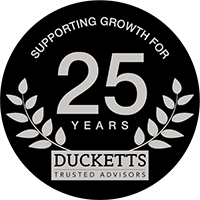When is a van, not a van?
Published:

You would think that the answer to that question was straightforward. If it looks like a van, it’s a van. Sadly this is tax and the rules are not that simple.
Is it a van? Yes = good. Is it a car? No = bad
There is an issue which is gaining traction which could affect (adversely) most of our clients.
HMRC have successfully argued that the Vauxhall Vivaro and the Kombi 1 and 2 are not vans and as such should be taxed as cars. The case is being challenged, but so far HMRC have won up to The Court of Appeal. It’s only The Supreme Court to go and that is likely to take some time.
The tax advantages afforded by a van over a car are myriad:
Van
VAT reclaim
100% Capital Alls
No or very modest BIKs
Car
Little or no VAT reclaim
CAs at 18% or more likely 6%
Eyewatering BIKs
To be clear, commercial vehicles with a second row of seats are in danger of being classified as cars with the tax implications above.
The rules have not changed, but this court case will give HMRC a huge stick with which to beat business. Accountants will have no choice but to treat these vehicles according to those ‘clarified’ parameters.
While it is probably not necessary to revisit past accounts assuming they were completed in good faith, it does not mean that HMRC would not seek to collect arrears of tax generated by applying these rules.
Interestingly, just because a dealer and the DVLA classify a vehicle as commercial, does not mean that HMRC would. The Ford Raptor is a case in point. The payload is not big enough to qualify as commercial for HMRC and as such should be classified as a car.
The tax case concerns Coca Cola and there is plenty of reading material on the internet if you really want to get into the detail.
There is a real danger of HMRC using this interpretation to collect tax retrospectively whatever the professional bodies think.
If you would like advice on making your business more tax eficient, get in touch.
Latest Posts
The Budget 2025
Welcome to the Team, Adam Wright!
Volatile, Uncertain, Complex and Ambiguous.
Meet The Team - Phil Taylor
Tax Tips 2025

